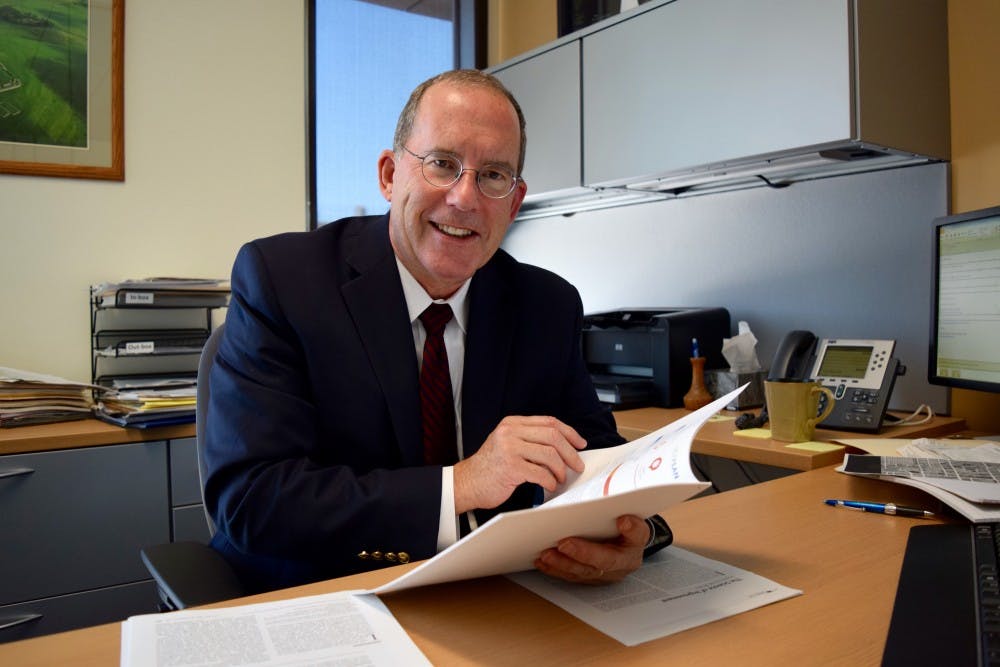A group of ASU faculty will conduct a two-year community-based research project to ensure that Maricopa County's most vulnerable are better taken care of through a $1 million grant from the Robert Wood Johnson Foundation.
William Riley, the principle investigator of the project and a professor in the College of Health Solutions, said the most vulnerable people include those suffering form severe mental illnesses and the homeless. A 2017 report by the Arizona Department of Economic Society said in Arizona over 37,000 adults and children "experienced homelessness" over the course of the year.
In the span of one day, there can be over 5,000 homeless people both sheltered and unsheltered in Maricopa County, according to Phoenix Rescue Mission.
Riley said the research project — which started this year — aims to create a collaborative database among government agencies, including law enforcement, housing and employment assistance, to share information and data on homeless and mentally ill populations.
Current stakeholders involved in the project include the Arizona Health Department, Phoenix Police Department and Southwest Behavioral Health Services.
Riley's role will focus on health-care systems and population health. In addition, Riley said he wants to broaden and combine the wide variety of organizations involved in the project in order to create solutions to ongoing and future problems and "widen the research lens."
Without giving details of the ongoing project, experts involved in the project said they hope to have a direct impact on the community by building a "toolkit" that can be expanded and used to help communities across the country.
Katie Pine, a co-investigator for the participatory portion of the project and an assistant professor at the College of Health Solutions, said she is finding a way to involve stakeholders in the project through collaboration.
Pine said the large database would allow stakeholders to share information when dealing with Maricopa County's most vulnerable community members.
"By integrating this data we'll be able to shed light on the dynamics of the behavioral health care delivery systems and the interactions of the different organizations in new and important ways," Pine said.
George Runger, the director of Center for Health Information and Research and chair of the Department of Biomedical Informatics, will provide and analyze the data collected in the project.
Runger said they are not trying to address a new issue, but instead do ongoing work to improve relations between physical health, behavioral health and the criminal justice system through collaboration.
"We hope that at the end, we can work together with partners to define an impactful intervention and implement the intervention," he said.
Reach the reporter at gggarci52@asu.edu and follow @gianagarciiia on Twitter.
Like The State Press on Facebook and follow @statepress on Twitter.




